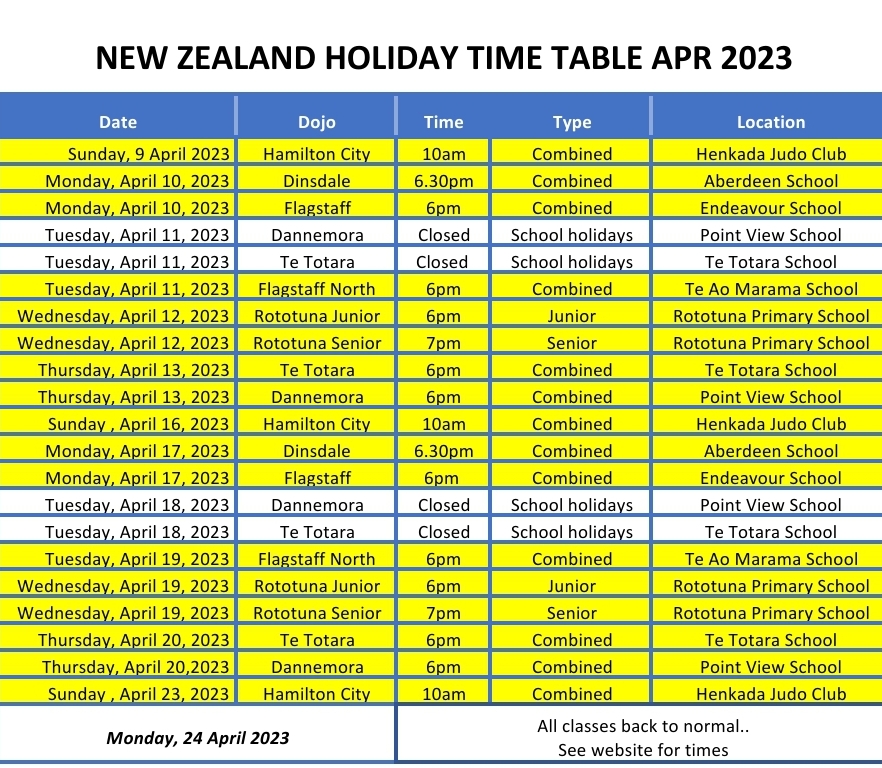Navigating School Holidays in New Zealand: A Comprehensive Guide for 2025
Related Articles: Navigating School Holidays in New Zealand: A Comprehensive Guide for 2025
Introduction
In this auspicious occasion, we are delighted to delve into the intriguing topic related to Navigating School Holidays in New Zealand: A Comprehensive Guide for 2025. Let’s weave interesting information and offer fresh perspectives to the readers.
Table of Content
Navigating School Holidays in New Zealand: A Comprehensive Guide for 2025

New Zealand’s school holidays are a cherished time for families to embark on adventures, relax, and create lasting memories. While the anticipation of these breaks is high, planning for them can be a task in itself. This comprehensive guide aims to equip parents, educators, and students with the essential information needed to make the most of school holidays in 2025.
Understanding the 2025 School Holiday Calendar:
The school holiday calendar in New Zealand is determined by the Ministry of Education and is subject to slight variations depending on the region and school. However, the core holiday periods remain consistent across the country. The following provides a general overview of the anticipated school holiday dates for 2025:
Term 1:
- Start Date: Late January/Early February
- End Date: Late April
Term 2:
- Start Date: Late April/Early May
- End Date: Early July
Term 3:
- Start Date: Mid-July
- End Date: Late September
Term 4:
- Start Date: Early October
- End Date: Mid-December
Important Considerations:
- Public Holidays: Public holidays, such as Easter Monday and Labour Day, often fall within school holiday periods, extending the break for students.
- Regional Variations: Some regions, particularly those with a significant tourism industry, may have slightly different holiday dates to cater to peak travel seasons. It’s crucial to consult your local school’s calendar for precise information.
- Term Dates Subject to Change: The Ministry of Education may adjust term dates due to unforeseen circumstances, such as natural disasters or pandemics. It’s essential to stay updated through official channels.
The Significance of School Holidays:
School holidays serve a vital purpose in the educational and social development of children and adolescents. They provide a much-needed break from the structured routine of school life, allowing for:
- Rest and Recuperation: Time away from the pressures of academics and extracurricular activities allows students to recharge mentally and physically.
- Family Bonding: School holidays create opportunities for families to spend quality time together, fostering stronger relationships and creating shared memories.
- Exploration and Learning: The freedom of holidays enables students to explore new interests, engage in hobbies, and learn through hands-on experiences outside the classroom.
- Cultural Enrichment: Travel during school holidays exposes students to diverse cultures, broadening their horizons and fostering a sense of global citizenship.
Making the Most of School Holidays:
Planning Ahead:
- Early Booking: Flights, accommodation, and tours often book up quickly, especially during peak holiday seasons. Booking well in advance can save you money and ensure your desired travel arrangements.
- Budgeting: Setting a realistic budget for your holiday activities is crucial to avoid overspending. Consider affordable options like camping, free local attractions, and self-catering.
- Researching Destinations: Research potential destinations based on your family’s interests, budget, and time constraints. Consider activities, weather conditions, and accessibility for all members of your group.
Engaging Activities:
- Outdoor Adventures: New Zealand offers a plethora of outdoor activities, from hiking and biking to kayaking and skiing. Embrace the natural beauty of the country and create memories that last a lifetime.
- Cultural Experiences: Explore museums, art galleries, historical sites, and cultural events to deepen your understanding of New Zealand’s rich heritage.
- Educational Trips: Consider visiting science centers, zoos, aquariums, or other educational institutions to make learning fun and engaging for children.
- Relaxation and Recreation: Don’t underestimate the value of simply relaxing and enjoying downtime. Spending time at home, reading, playing games, or simply enjoying each other’s company can be equally rewarding.
Staying Safe and Healthy:
- Travel Insurance: Ensure you have adequate travel insurance to cover medical emergencies, lost luggage, and trip cancellations.
- Health Precautions: Pack essential medications, stay hydrated, and be mindful of potential health risks associated with your destination.
- Sun Protection: New Zealand has high UV levels. Protect your skin and eyes with sunscreen, hats, and sunglasses.
- Safety Measures: Be aware of your surroundings, especially when traveling to unfamiliar areas. Follow local safety guidelines and keep an eye on children.
FAQs: School Holidays in New Zealand
Q: How long are the school holidays in New Zealand?
A: The length of school holidays varies depending on the term. Typically, they range from two to three weeks, with the longest break being the summer holidays, lasting approximately six weeks.
Q: Are school holidays the same across all regions in New Zealand?
A: While the core holiday periods are generally consistent, some regions may have slightly different dates due to local factors. It’s important to check your specific school’s calendar for accurate information.
Q: What are some popular destinations for school holidays in New Zealand?
A: New Zealand offers a wide range of destinations for families. Popular choices include:
- North Island: Auckland, Rotorua, Waitomo Caves, Tongariro National Park, Coromandel Peninsula.
- South Island: Queenstown, Fiordland National Park, Franz Josef Glacier, Mount Cook, Christchurch.
Q: Are there any specific events or festivals during school holidays in New Zealand?
A: New Zealand hosts numerous events and festivals throughout the year, many of which coincide with school holidays. Some notable examples include:
- Matariki Festival: A celebration of the Māori New Year, typically occurring in June or July.
- New Zealand International Arts Festival: A major performing arts festival held in Wellington in March.
- World of WearableArt Awards Show: A spectacular fashion event showcasing innovative and creative designs, held in Wellington in September.
Q: What are some tips for managing school holidays with children?
A:
- Establish a Routine: While holidays are a time for relaxation, maintaining some structure can help children adjust back to school more easily.
- Engage Children in Planning: Involve children in decision-making processes, such as choosing destinations or activities, to foster a sense of ownership and excitement.
- Limit Screen Time: Encourage outdoor activities, creative pursuits, and social interaction to promote healthy development and reduce screen time.
- Prepare for the Return to School: Ease the transition back to school by gradually reintroducing routines and academic expectations in the days leading up to the start of term.
Conclusion:
School holidays in New Zealand offer a unique opportunity for families to connect, explore, and create lasting memories. By planning ahead, considering various options, and staying informed about local resources and events, families can make the most of these precious breaks. Whether it’s embarking on an adventure, embracing cultural experiences, or simply enjoying downtime together, school holidays in New Zealand promise a rewarding and enriching experience for all.








Closure
Thus, we hope this article has provided valuable insights into Navigating School Holidays in New Zealand: A Comprehensive Guide for 2025. We thank you for taking the time to read this article. See you in our next article!